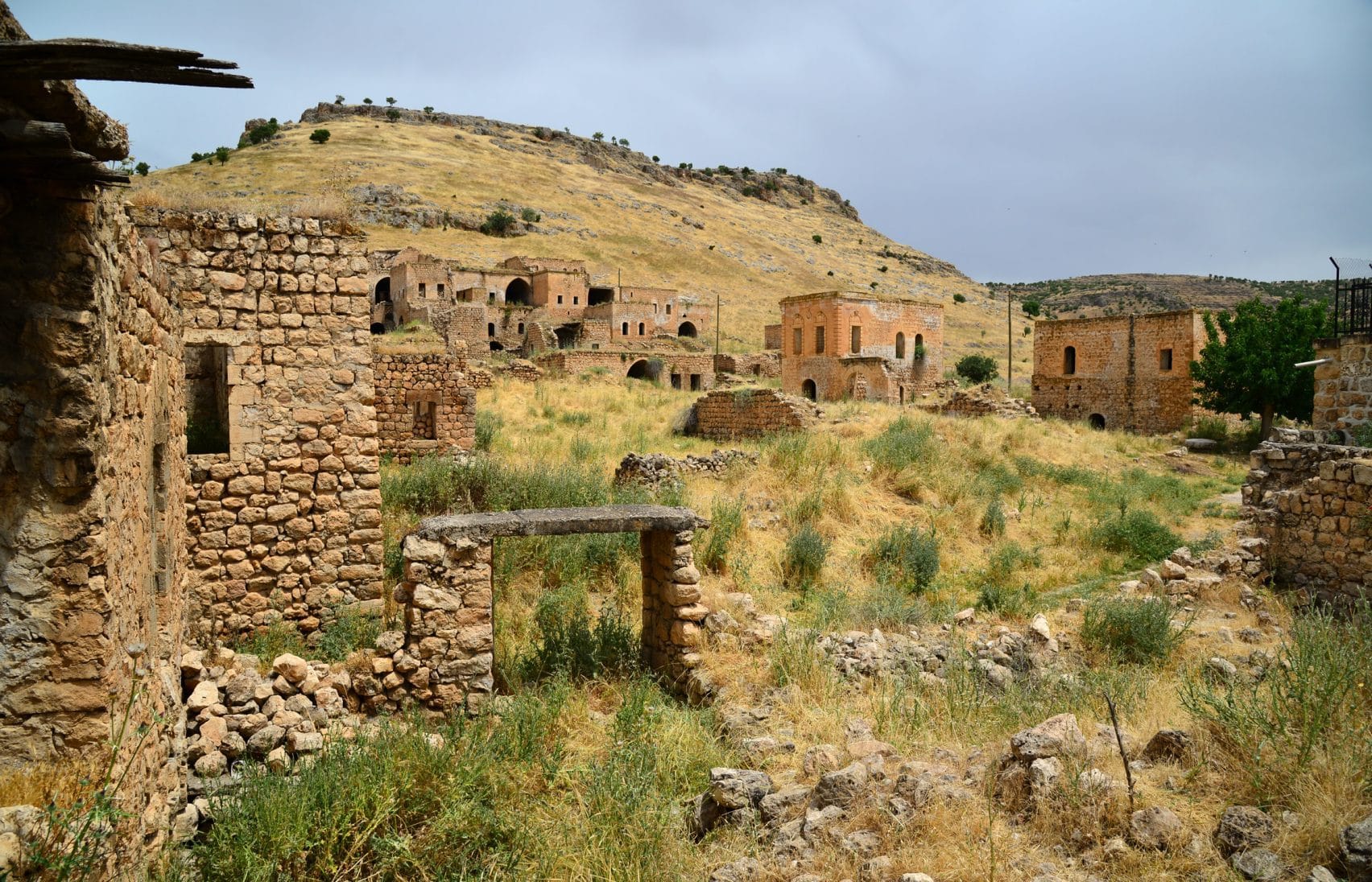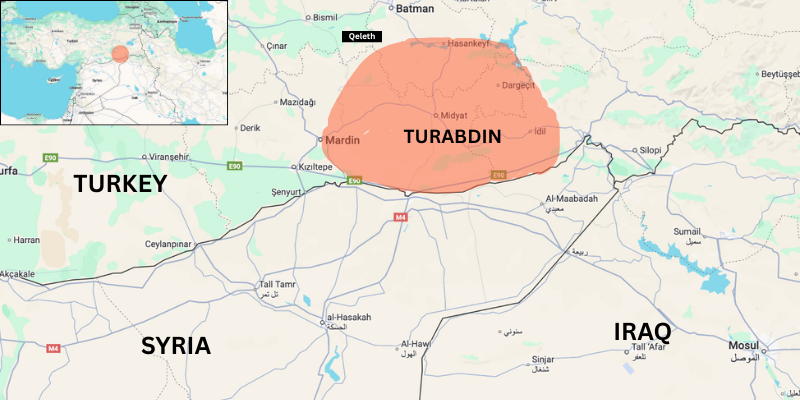A group of around 300 Assyrians from the diaspora, hailing from the village of Qeleth (Turkish Dereiçi) in the Savur district of Mardin, recently visited their ancestral home to explore its revival, according to Turkish sources. The visit coincided with the Commemoration Day of the local saint, Mor Dimet, for which an event was held in the Mor Dimet Church.
The visit was coordinated with local authorities, who organized a workshop to examine ways of enhancing the tourism potential of the village. One of the state organizations pursuing Qeleth’s revival is DİKA, a regional development agency operating in Turkey’s TRC3 region, which includes the provinces of Mardin, Batman, Siirt, and Şırnak, and is partly financed through EU funds. Officials from DİKA have been courting Assyrian diaspora communities in Europe to encourage investment in Assyrian areas. DİKA supports private sector representatives through an investment support office that assists groups and individuals with their business ideas.
The governor of the Savur district, Enes Emircan Buyuran, emphasized during a speech to the visiting Assyrians the importance of protecting the village’s identity, culture, and traditions, stressing that citizen support is essential in the effort to make Qeleth an attractive tourism destination, according to Turkish reports.

An outlier village
The Assyrians originating from Qeleth are today scattered around the world, with a notable concentration in the Swedish town of Märsta, north of Stockholm, where many have distinguished themselves as successful businessmen in the hospitality sector.
Qeleth was the only village in the Mhallami-majority area that remained Christian and did not convert to Islam. As a result, it became an outlier, and over time its inhabitants lost their Assyrian mother tongue, adopting instead the Arabic spoken by the local Muslims, the Mhallami. The Mhallami are a group believed to be of Assyrian origin who converted to Islam centuries ago.
Qeleth was devastated by Kurdish attacks during the Hamidian Massacres in 1895, and most of its surviving inhabitants were massacred again during the Seyfo genocide of 1915. The population rebounded to around 600 Assyrians in 1960, but then experienced a sharp decline with the onset of emigration. By 2013, only a handful of Assyrians remained in the village.
This latest visit marks the second group pilgrimage by diaspora Assyrians with roots in Qeleth in pursuit of its revival.











